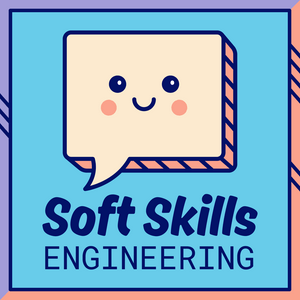In this episode, Dave and Jamison answer these questions:
Hi Dave and Jamison,
Internal dev asker from the second half of Episode 441 checking back in. Your “ask what scared the previous dev” advice in particular has paid off handsomely; I now carry around a little book of eldritch warnings and, somehow, people keep bringing me their unknowable monsters to interpret. It’s almost as though the previous dev knew these sorts of things would happen! I didn’t set out to acquire Lovecraftian knowledge, but here we are, still in one piece.
Today’s puzzle: getting busy humans to test our stuff early, while feedback can still make it into production. We’re trying to build a culture where people will poke at a rough prototype now, instead of filing a Very Concerned Ticket three hours before release. How do we get people to test and provide feedback earlier? Do we stay disarmingly warm, promise tiny time boxes, and make a public show of “you said / we changed” until participation feels like the default? Or do we wave our terminal windows around threateningly on a screen share and promise doom (and minor annoyances) until they comply?
Thanks for lending sanity to the abyss,
—An increasingly arcane internal apps dev
I have been listening to your podcast regularly and am inspired by how the podcast and the community have grown.
I am a developer with over 10 years of experience and have moved to Sweden from a country outside Europe, with the ambition to build my long-term life and career here.
For several years, I have tried to take that step myself, but often encounter the same obstacle: I am told I need experience as an engineering manager — but without the role, I can’t get the experience, and without the experience, I can’t get the role.
I have invested a lot of time and energy in developing myself: learning about leadership, coaching, communication, and team dynamics.
Despite this, I find it difficult to see a clear path forward. With everything happening in tech right now, I sometimes feel stuck and uncertain how to break this cycle.
My question is: how did you take your first step? How can one realistically enter an engineering manager role when the door seems closed without prior experience?
Thank you for creating such an honest and inspiring podcast. It already means a lot to me — and to many others, I am sure.


